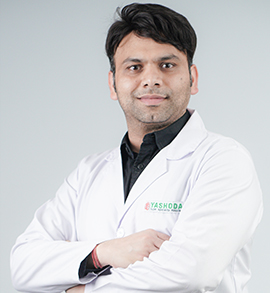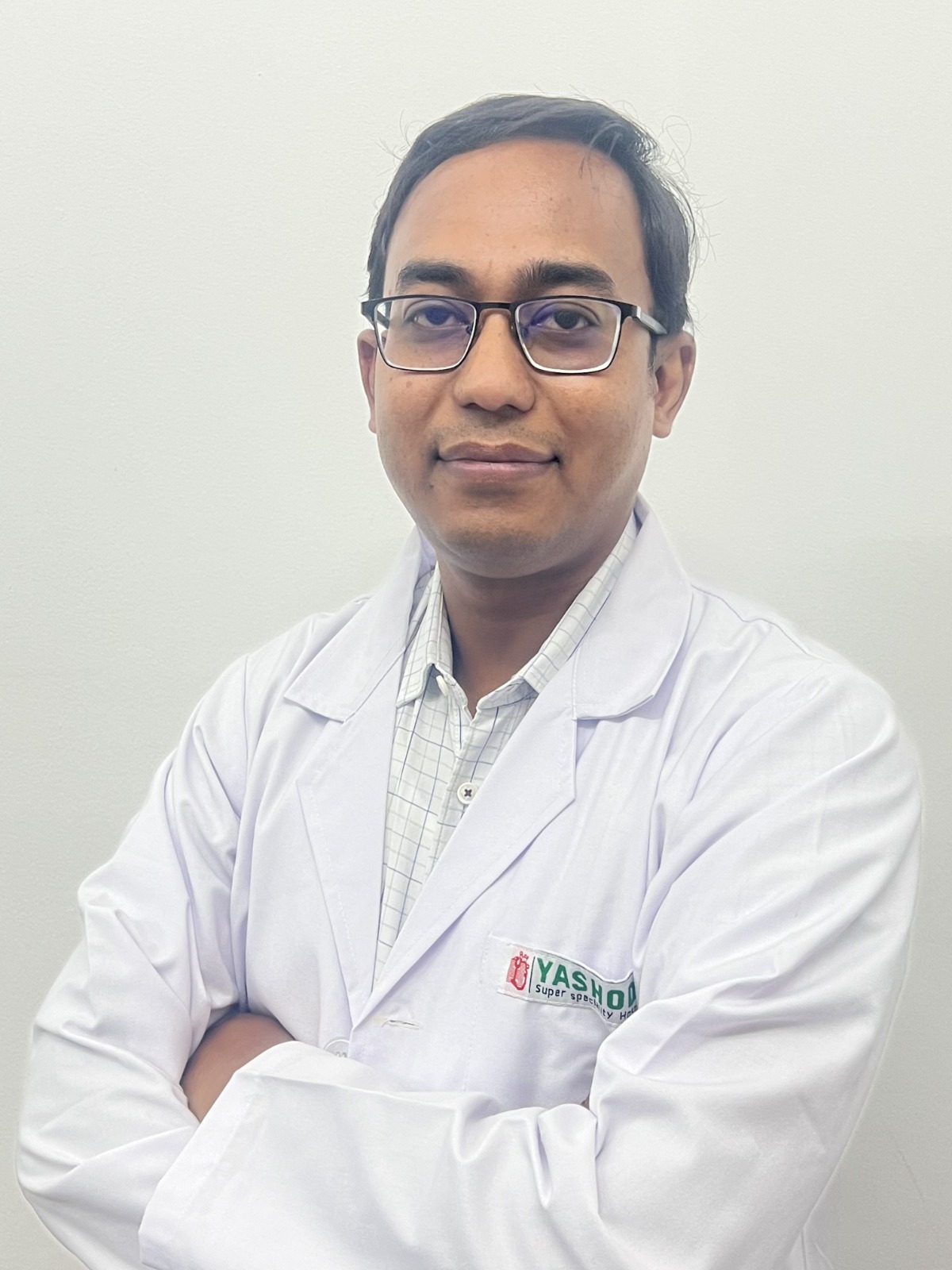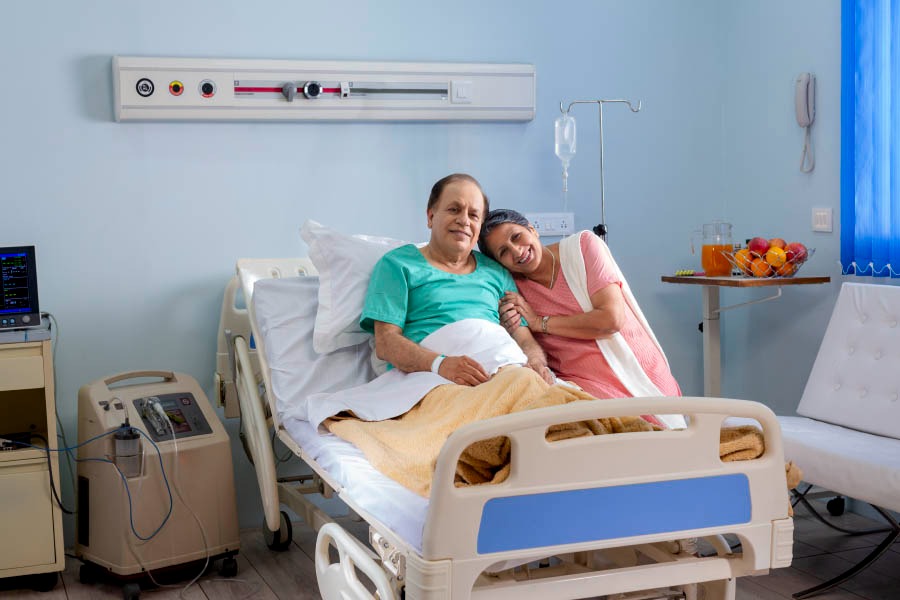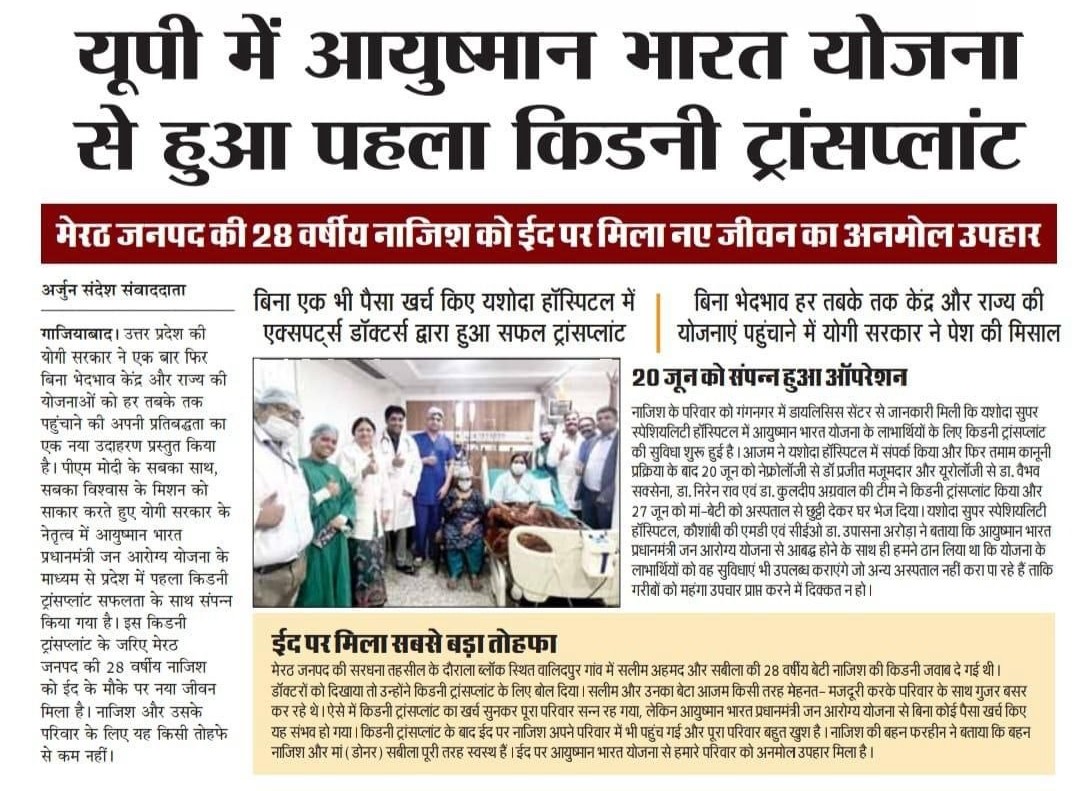

The Department of Nephrology and Renal Transplant at Yashoda Medicity provides comprehensive care for kidney-related diseases. Our focus lies in early detection, disease prevention, effective management of chronic kidney disease (CKD), and advanced therapies such as dialysis and renal transplantation. By combining medical excellence, personalized treatment, and compassionate care, we aim to ensure better outcomes and improved quality of life for our patients.
Hemodialysis: For patients in end-stage renal disease (ESRD), where toxins and fluid accumulate, leading to fatigue, swelling, nausea, and other complications. Dialysis effectively clears waste and relieves symptoms.
CAPD (Continuous Ambulatory Peritoneal Dialysis): A flexible, home-based dialysis using the peritoneal membrane to filter waste. Ideal for patients seeking independence from hospital-based treatment.
Glomerulonephritis: Inflammation and damage to kidney filters, resulting in proteinuria, hematuria, or swelling. Often diagnosed via kidney biopsy.
Diabetic Nephropathy: Kidney damage caused by long-standing diabetes, presenting with protein leakage in urine, swelling, and rising creatinine.
Kidney Stones (Renal Stones): Hard mineral deposits causing severe loin-to-groin pain, hematuria, and obstruction.
Urinary Tract Infections (UTIs): Common infections requiring timely treatment to prevent renal complications.
Kidney Biopsy: Essential diagnostic procedure to identify disease type and extent of damage in unexplained renal dysfunction.
Renal transplantation is the treatment of choice for patients with kidney failure, offering long-term recovery and better quality of life.
Our transplant program is equipped to manage even the most complex cases:
ABO-incompatible transplants
Highly sensitized transplants
Swap transplants
High-risk patients with co-morbidities
We follow stringent evaluation, desensitization protocols when required, and advanced surgical techniques to maximize success and minimize complications.
 More
More

Associate Director, Nephrology and Renal Transplant Medicine

Senior Consultant Pediatric Nephrology

Senior Consultant – Nephrology & Renal Transplant

Associate Director – Urology, Uro-oncology, Robotics & Renal Transplant

Senior Consultant – Nephrology & Renal Transplant

A tremendous job has been done by Dr. Amit Sharma. I met with an accident in which the ACL ligament of my left knee was completely torn. I met Dr. Amit Sharma then he analysed the situation and told us about the procedure and the time period to recover from the injury. He has performed a successful surgery. The good thing is the confidence that Dr. Amit Sharma has on his surgery that he didn’t put braces on the knee while other doctors put the braces on for a month and then started Physiotherapy which will take a longer time period to heal from the injury. Dr. Amit Sharma has started the Physiotherapy from the very next day of the...
A tremendous job has been done by Dr. Amit Sharma. I met with an accident in which the ACL ligament of my left knee was completely torn. I met Dr. Amit Sharma then he analysed the situation and told us about the procedure and the time period to recover from the injury. He has performed a successful surgery. The good thing is the confidence that Dr. Amit Sharma has on his surgery that he didn’t put braces on the knee while other doctors put the braces on for a month and then started Physiotherapy which will take a longer time period to heal from the injury.
Dr. Amit Sharma has started the Physiotherapy from the very next day of the surgery and i was discharged in 2 days, and the Physiotherapy is undergoing at my home. It's the 10th day today and I have gained so much confidence in 10 days that I am recovering very fast and in a few weeks I will be able to walk without any support.
Thanks to Dr. Amit Sharma, he is really having magical hands, he is very kind in nature, in my regular visits all of my stress went away after talking to him.
Again Thank You so much Doctor
Treatment By:
Dr. Amit Sharma
Date:
09 Apr 2025

A young female was diagnosed with chronic kidney disease after developing generalised weakness, loss of appetite, and intermittent vomiting. Investigations revealed impaired renal function with urea of 200 mg/dl, creatinine of 8 mg/dl, and haemoglobin of 9 g/dl. She was started on haemodialysis through a catheter placed in the right side of her neck and was advised AV fistula creation along with maintenance haemodialysis three times a week. She consulted our expert team of doctors, Dr Prajit Mazumdar, Dr Vaibhav Saxena, and Dr Kuldeep Agarwal, at Yashoda Superspeciality Hospital, Kaushambi. They recommended renal transplantation as ...
A young female was diagnosed with chronic kidney disease after developing generalised weakness, loss of appetite, and intermittent vomiting. Investigations revealed impaired renal function with urea of 200 mg/dl, creatinine of 8 mg/dl, and haemoglobin of 9 g/dl. She was started on haemodialysis through a catheter placed in the right side of her neck and was advised AV fistula creation along with maintenance haemodialysis three times a week.
She consulted our expert team of doctors, Dr Prajit Mazumdar, Dr Vaibhav Saxena, and Dr Kuldeep Agarwal, at Yashoda Superspeciality Hospital, Kaushambi. They recommended renal transplantation as the best form of renal replacement therapy. Her transplant workup was initiated, and her mother, who had a matching blood group, was identified as the donor.
After obtaining clearance from cardiology, pulmonology, gynaecology, and psychiatry, as well as approval from the authorisation committee, she successfully underwent renal transplantation with ATG induction. Post-transplant, she maintained good urine output with steadily decreasing creatinine levels and was discharged with a creatinine of 1.2 mg/dl.
She continues to do well on outpatient follow-up, two years after her transplant, with stable graft function.
Treatment By:
Dr Prajit Mazumdar, Dr Vaibhav Saxena, and Dr Kuldeep Agarwal
Date:
29 Jun 2023
Finally successful operation of father disease Lipoma has been done. Thanks a lot to Dr. Asheesh, Dr. Govind and Dr. Arindam Mukherjee, Nurses along with all staff. Nice experience, overall I can say every service of this hospital is outstanding.
Our heartfelt thanks to the entire Hospital, especially Dr Aayush Goyal and his team who performed the CABG surgery on our patient (Sh Arvind Bhatia) with extremely satisfactory results. Personal attention given to our case by the hospital COO, Dr. Sunil Dagar and the total management and the hospital staff, who ensured we were given utmost priority in all respects during the course of the treatment. Special thanks to Dr Asit Khanna for his diagnosis and guidance. Last but not the least, the homecare services provided by the hospital were really good.
Excellent services
Outstanding Results
We wish all the best to the hospital and its team.
